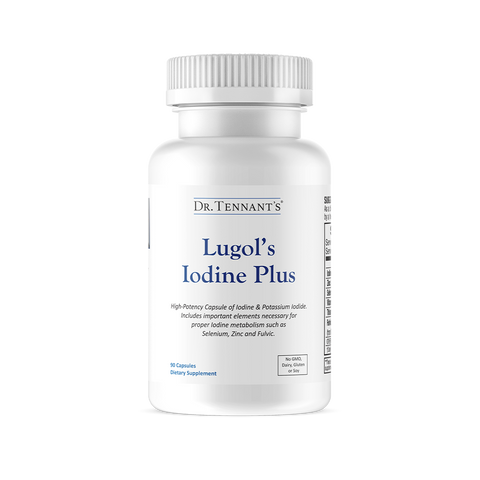Did you know that low stomach acid can contribute to two common digestive issues such as gastroesophageal reflux disease (GERD) and small intestinal bacterial overgrowth (SIBO)?
Understanding GERD
Let's start with GERD, which is a condition where stomach acid flows back into the esophagus, causing irritation and inflammation. Low stomach acid can contribute to GERD in several ways. First, when there isn't enough acid in the stomach to properly break down food, it can sit in the stomach longer and ferment, producing gas and pressure that can push stomach contents up into the esophagus. This can weaken the lower esophageal sphincter (LES), a muscular valve separating the stomach from the esophagus, making it more likely to open and allow acid to reflux into the esophagus. Finally, low stomach acid can delay gastric emptying, which can cause an increase in pressure in the stomach and force acid up into the esophagus.
Understanding SIBO
Moving on to SIBO, which is a condition where there is an abnormal overgrowth of bacteria in the small intestine. Low stomach acid can contribute to SIBO by impairing gut motility, reducing digestive secretions, and altering the balance of the gut microbiome. When there is not enough stomach acid, the pH in the small intestine becomes less acidic, which can allow bacteria to thrive. This can lead to a buildup of bacteria in the small intestine, as they have more time to grow and multiply. Low stomach acid can also slow the rate at which food moves through the digestive system, leading to a buildup of bacteria in the small intestine.
The Risks of Masking Symptoms with Antacids
Why Addressing the Root Cause of GERD and SIBO
is Crucial for Long-Term Health
Taking antacids can provide temporary relief for symptoms of GERD and SIBO by neutralizing stomach acid, but it does not address the root cause of these conditions. If the underlying problem of low stomach acid levels is not addressed, antacid use can exacerbate the issue and lead to further complications.
Antacids can reduce the acidity of the stomach, which can create an environment that promotes bacterial overgrowth and exacerbates SIBO symptoms. Additionally, the reduction of stomach acid can decrease the ability of the body to break down and absorb nutrients, leading to nutrient deficiencies over time. Long-term use of antacids has also been associated with an increased risk of bone fractures, kidney problems, and infections.
In the case of GERD, taking antacids can provide temporary relief for symptoms, but it does not address the root cause of the condition. GERD can be caused by several factors, including poor diet, stress, and obesity. Failure to address these underlying factors can lead to chronic GERD, which can damage the esophagus and increase the risk of developing complications such as esophageal cancer.
Tips For Healing Your Gut Naturally
If you suffer from GERD or SIBO, you know how uncomfortable and debilitating these conditions can be. While antacids may provide temporary relief, addressing the root cause of these conditions is essential for long-term health.
To address low stomach acid and its contribution to GERD and SIBO, one of the things you can do is to focus on healing the gut. This includes optimizing your diet and lifestyle to support healthy digestion and reduce inflammation.
Stomach Acid
One important factor to consider is low stomach acid, which can impair gut motility, reduce digestive secretions, and alter the balance of the gut microbiome. But don't worry, there are natural remedies that can help!
Eat Whole Foods
Avoid processed foods, sugar, and other gut irritants, which can exacerbate symptoms of GERD and SIBO. Reducing your intake of these foods and opting for whole, nutrient-dense foods can promote a healthy gut microbiome and reduce inflammation.
Supplement with Iodine
Dr. Tennant's Lugol's Iodine is an effective supplement to promote the production of stomach acid and reduce GERD or SIBO symptoms.
Incorporate Digestive Enzymes
Dr. Tennant’s® Digestive Enzymes can help your body break down hard-to-digest foods, and this can help improve stomach acid levels and support proper digestion.
Additional Support
Taking a probiotic supplement such as Dr. Tennant’s® Probiotic Formula or apple cider vinegar can also be helpful in promoting a healthy gut microbiome.
Summary
At Tennant Products, we believe that the first line of defense against conditions such as GERD and SIBO is to focus on healing the gut through lifestyle changes. However, we understand that sometimes lifestyle changes may not be enough, especially if the digestive system is significantly compromised. In these cases, supplements can be helpful in supporting the body's natural healing processes. Working with a healthcare practitioner who can help determine the best course of action for your individual needs is important.
Want to Learn More? Check out our Educational Materials:
Understanding Lugol's Iodine (27 min Video)
Guide to Taking Dr. Tennant's® Lugol's Iodine Liquid & Capsules
[Free Download]
Featured Products in This Article:

Dr. Tennant’s® Logol's Iodine Liquid
A great solution for supporting the body’s need for iodine and iodide. Iodine is one of the few elements required for cellular health that the body cannot produce, so it needs to be supplemented through food or additional nutrition.
 Dr. Tennant’s® Lugol's Iodine Plus Capsules
Dr. Tennant’s® Lugol's Iodine Plus Capsules
A complete iodine supplement solution with necessary co-factors Zinc, Selenium, B1 as well as Vitamin C necessary for proper iodine metabolism.

Dr. Tennant’s® GI 60 Probiotic Formula
Provides your body with a biological synergy with “good bacteria” (probiotics), “food for the probiotics” (prebiotics), and a protective, delayed-release delivery technology to maximize probiotic effectiveness and support a healthier GI system.

Dr. Tennant’s® Digestive Enzyme Formula
A full-spectrum, professional strength formula with 27 digestive enzymes to target difficult to eat foods such as gluten, dairy, grains, nuts, seeds, sugars, beans, and broccoli.





